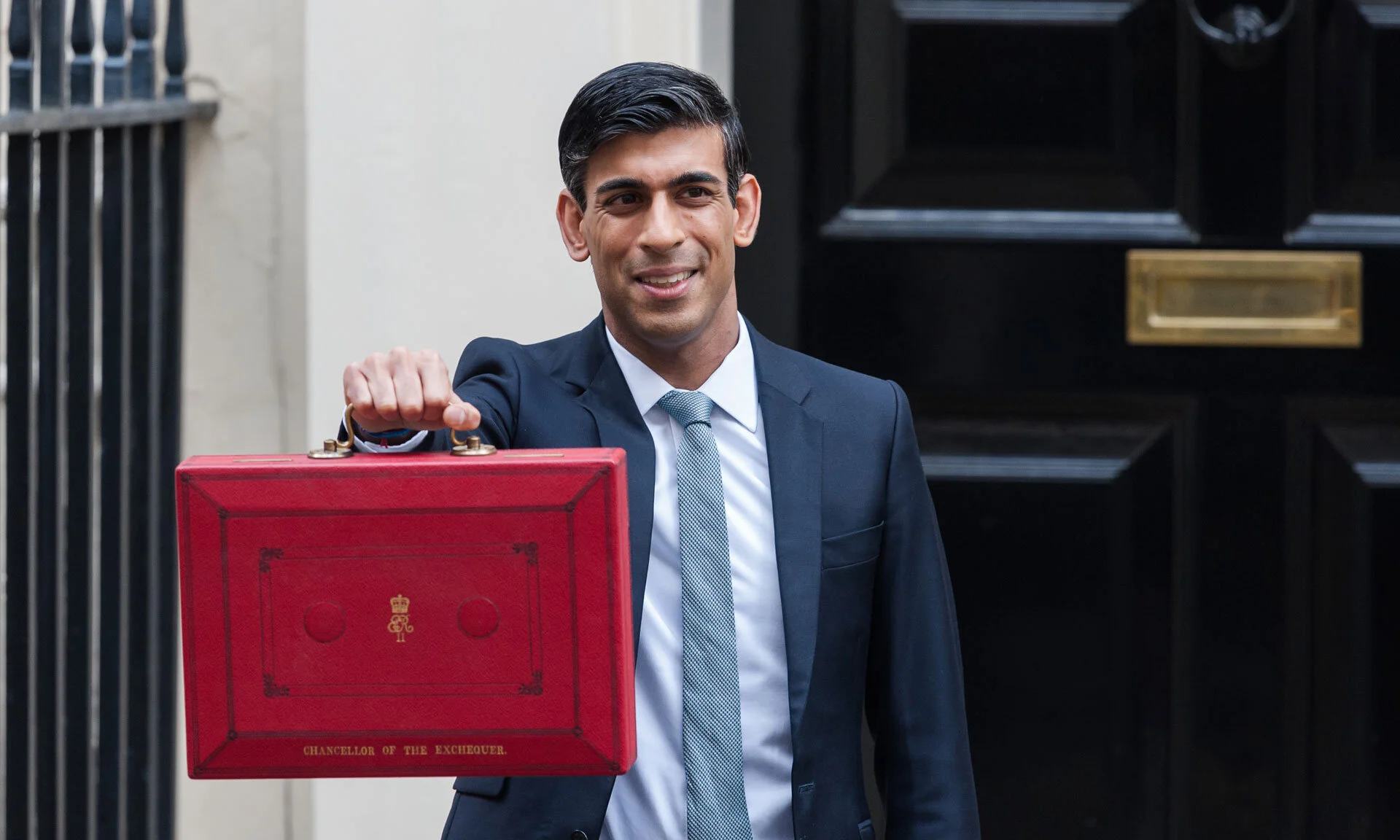Blog
Browse By Category Or Search By Keyword
The Question You MUST Ask Any Potential Employer
I know it's a real challenge for many people today to earn a decent income, find affordable housing, build up savings and accumulate financial wealth. But just because it's a challenge doesn't mean it's impossible.
The single most expensive financial need we all have is building up sufficient money to avoid having to work until we die. Back in the day, this used to be called retirement and typically was something done about ten years before death.
The Tax Consultation Tsunami
Less than three weeks after the UK budget announced some tax cheer for home buyers and further COVID-related financial support, the UK government has published over 30 tax updates, consultations and documents. To save you the effort, I've had a trawl through all the documents to see what's relevant from a personal finance perspective.
The Buckets And Spades Approach To Wealth
Two years ago, I had the crazy idea of building a beautiful barn-style house in an unloved and unused part of my garden. Today it is a reality. After nine long months, the project is nearing completion.
I've been involved in several property-related projects over the years, including refurbishments and remodeling, but building an entire house is another ballgame entirely. I had to research, plan, negotiate and oversee to ensure the project went smoothly and stayed on time and within budget.
The Budget That Wasn't
This year, as I have done for several years now, I was one of the Financial Times’ (FT) budget day commentators. Despite trawling through the enormous number of budget documents, we struggled to find many significant personal financial planning changes.
10 Things Covid-19 Has Taught Us About Money
This week, the UK government set out tentative plans to relax coronavirus restrictions and reopen the economy, bringing much-needed optimism and hope to a weary population. I thought it might be useful to reflect on what the pandemic has taught us all about money.
The Truth About Renting Versus Buying Property
Conventional wisdom is that buying a home beats renting. But conventional wisdom might be wrong. In my latest Real Money Stories podcast - “David Blatt Invests His Way To Wealth” - my guest explains how he has built a multi-million dollar property fund over the past 13 years. He also points out that he rents his home in downtown Manhatten in New York because this frees up his capital for wealth creation and gives him the maximum flexibility to move home in the future.
Is An Addiction Keeping You Broke?
Whether it's drink, drugs, overspending or gambling, addictions can have a massively detrimental effect on our wellbeing.
New research from Oxford University has shone a light on how regular gambling affects wellbeing.* The researchers analysed the banking transactions of millions of Lloyds Bank's UK customers and found: high levels of gambling are associated with a 37% increase in mortality; the top 1% of gamblers surveyed spent 58% of their income gambling; 1 in 10 are spending 8% of their income on the habit of gambling
What You Aren’t Being Told About Bitcoin and GameStop
If you see other people making a lot of easy money in a short space of time, they are likely to be criminals, very lucky, or super smart. Sometimes they can be all three! Recently, a minority of people have made a lot of money from a surge in the price of the nascent Bitcoin cryptocurrency, shares in loss-making video games retailer GameStop, and the spot price of silver bullion. What all these things have in common is they don't produce anything of value or positive cashflow. They derive their value from the demand of existing and new investors.
12 Money Mistakes To Avoid
Charlie Munger is 97 years old and has been Warren Buffett's business partner for five decades. Despite giving away vast amounts of his wealth, he is still worth nearly $2 billion.
One of the traits that has helped Munger become wealthy is his ability to learn from his mistakes, and also those made by others. Munger advises "I like people admitting they were complete stupid horses' asses. I know I'll perform better if I rub my nose in my mistakes. This is a wonderful trick to learn."
Money Myths Debunked
Social media, the internet, Nigel from down the pub. None fall short when it comes to dishing out ‘advice’ on how to best manage your finances. However, how much of this is actually reliable is a different story altogether. In my most recent Instagram live, I debunked some of the ten most common money myths you might have heard, alongside certified money coach and good friend, Fanny Snaith. You can still watch the replay on my Instagram or YouTube channel but below is a handy breakdown of what we discussed.
One Of The Best Kept Secrets To Being Happier
In my book Money Moments: Simple Steps to Financial Wellbeing, I recounted the time when I was facing financial difficulties many years ago. Now I want to make clear, I had enough money to feed and house my family, but there wasn't much for anything else. And I had a lot of debt weighing me down.
Despite (or perhaps because of) my financial predicament, I decided to start making regular charitable donations of £25 a month. It wasn't a lot, but it was a start. I decided to use a charity account because that allowed me to accumulate charitable funds and defer any decisions about making donations until I had a more meaningful amount.
21 Ways To Win With Money In 2021
2020 is the year that most people would rather forget. The global pandemic has affected every aspect of life for most of the world's population, including their finances. How has your financial situation changed over 2020? Has it got better, worse, or stayed the same?
How To Avoid A Financial Mess In Your Family
Do you know if your grandparents, parents or adult children would leave a financial mess for you or others to sort out if they pass away or become incapacitated? More to the point, will you leave them with a financial mess if you pass away or become incapacitated?
Television presenter and actress Caroline Flack died in tragic circumstances in early 2020. Media reports suggest that Caroline's estate was worth about £2M when she died. But because she died without a will - known as being intestate - and was unmarried without children, all her wealth will pass to her parents.
Are You On Course With Your Money?
In a modern aeroplane, the onboard flight computer monitors the operation of the aircraft and alerts the pilot to any relevant issues. While there are a lot of instrument displays, switches and audio alerts, the pilot tends to focus on just a handful of metrics like altitude, wind speed, fuel consumption and oncoming weather.
By focusing on those factors which are likely to have the most significant impact on flight safety and speed, the pilot minimises mental fatigue, plots the most efficient course and remains better prepared to deal with any potential emergency.
How Many Paydays Have You Got Left?
In Time is a 2011 science fiction film featuring Justin Timberlake and Amanda Seyfried. In a dystopian future about 50 years from now, people are genetically engineered to stop ageing at 25. Also at this point, a 12-month countdown clock starts on their arm. Once the clock reaches zero, the person dies. People can increase their clock time - and as a result their lifetime - by transferring time from other people or by downloading time held in special Time Capsules. Time is, therefore, the universal currency.
Is Money Causing Conflict With Your Partner?
A listener of my Real Money Stories weekly podcast, let's call her Chloe, recently got in touch. Chloe asked for my help in dealing with a difference of opinion between how she and her husband handle money. In her email, she wrote:
"My husband and I have totally different views on money. I am motivated by money and have money goals that I would like to achieve. However, my husband has very little financial wisdom. So much so that it was very early on in our marriage that we decided separate bank accounts were the way to go…”
Why Most Budgets Don’t Work
Learning to control day-to-day spending is the essential foundation upon which financial wellbeing is built. It doesn't matter how much you earn. If you can't control your spending, you'll find it much harder to get on top of your money. And we all know that living payday to payday is really no fun.
Getting control over day-to-day spending is vital to: avoiding racking up debt and the stress that goes with it; being able to handle life's money curve balls and turn a potential drama into a mere inconvenience; being able to afford those little luxuries, like a takeaway, without feeling guilty; being able to pay off debt, build wealth and have more choices and fun.
5 Ideas To Help You Weather The COVID Financial Storm
Some experts think that the mental and financial wellbeing implications of the Coronavirus pandemic may overshadow the physical health impact.
Social isolation and lack of human contact can clearly harm our mental health. But being unable to make ends meet, because your income has stopped or fallen off a cliff, can equally make you miserable.
Money has always been a primary source of stress and anxiety, which can lead to unhappiness if left unchecked. And if your financial problems seem enormous or impossible, it's easy to feel overwhelmed and discouraged.
When You Shouldn’t Invest
For most people, building wealth is an essential element of their financial wellbeing. The three factors which have the most significant impact on how much wealth you accumulate are:
The amount you save; how long your money is invested; the returns you achieve each year (net of costs and taxes).
As a general rule, the higher the expected or potential return, the higher the level of risk. Risk means the possibility of a total loss of capital, fluctuations in the daily value of your investment or the potential for future returns to be lower (or non-existent) than anticipated (based on historical performance).
The Big Credit Score MYTH
I recently established a presence on Instagram so that I can share my money insights with a broader audience. This week I will be holding my first Instagram Live, which will also let me to answer viewers' money-related questions.
I've been concerned to see some personal finance information on Instagram which is very poor or just plain wrong. While I'm sure most of the people posting this content have good intentions, following their 'advice' could be very detrimental to your financial wellbeing.




















